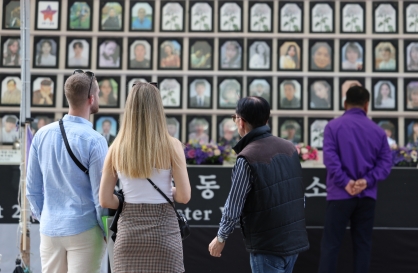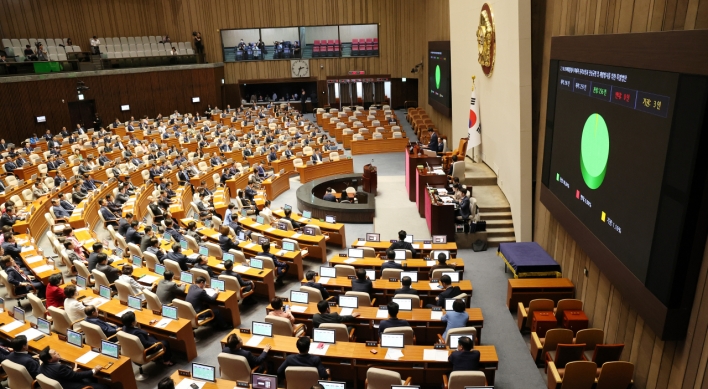For Koreans, Europe no longer about the big clubs
By Korea HeraldPublished : Sept. 21, 2012 - 21:01
The summer of 2012 marked the beginning of a new era for South Korean soccer and not just because of a bronze medal at the Olympic Games. It saw a number of interesting transfers involving star players already in Europe that reflected how attitudes to European transfers are changing.
Park Ji-sung, the biggest star in the first serious wave of Korean players to move to Europe, is now in the twilight of his European career. Time has passed, and Kim Bo-kyung’s move to Cardiff City in the English Championship in the summer signified the start of the third wave of players to move from Asia to Europe.
Members of the second wave that headed to Europe in the latter part of the previous decade such as Park Chu-young and Ki Sung-yueng provided most of the interest. These are the soccer stars that headed to Europe two to four years ago and are already with their second or even third clubs.
“It is showing a maturity in the Korean transfer market when it comes to Europe,” said Steve Darby, an English coach with extensive experience in Asia and currently working as a consultant for English Premier League club Everton FC. “It shows players are not just being bought to sell shirts but are being bought as they are valuable playing assets. They have established themselves in Europe.”
The biggest move this year saw 23-year-old Ki Sung-yueng join English Premier League team Swansea City for a fee reported to be around $9 million. Ki joined Celtic in Scotland in December 2009 and soon settled in Europe. His performances for the club and then in the summer at the 2012 Olympics helped facilitate a transfer to one of the most popular soccer leagues in the world.
Ki’s route is the classic stepping-stone method used by Park Ji-sung and Park Chu-young. All moved from Asia and established themselves in a smaller league before moving to the Premier League.
“An Asian player should go to a club where he will be allowed to settle both on and off the field, and if he succeeds, then the next move could be a big one,” said Darby.
Of course, not all transfers work out for the best. Park Chu-young’s big move did not go well. The striker left FC Seoul in 2008 for AS Monaco. After three solid seasons in France, he achieved his dream move to English giant Arsenal in August 2011. It was not a success as he played just seven minutes in the Premier League all season.
Park got a chance to put his career back on track. He has been loaned to Spanish team Celta Vigo for the European season. Not only will the player collect more minutes on the field, Arsenal received 1 million euros for the temporary transfer.
“There are always pros and cons in transfers,” said Park Yong-soo, the head of planning and development at the Korea Football Association. “If you look at Park Chu-young, many people were disappointed that he went to Arsenal and didn’t play so much, and when he was called up for the Olympics, people were worried.”
The player’s experience at Arsenal and Ki’s move to Swansea has helped to change the attitudes of players and media, said Park.
“I think people now realize that joining a big club is not the most important thing, it is about whether a player can play for the club. These days, players have matured and players understand that you have to find the right club and often step-by-step is better as Ki Sung-yueng has shown.” (Yonhap News)
Park Ji-sung, the biggest star in the first serious wave of Korean players to move to Europe, is now in the twilight of his European career. Time has passed, and Kim Bo-kyung’s move to Cardiff City in the English Championship in the summer signified the start of the third wave of players to move from Asia to Europe.
Members of the second wave that headed to Europe in the latter part of the previous decade such as Park Chu-young and Ki Sung-yueng provided most of the interest. These are the soccer stars that headed to Europe two to four years ago and are already with their second or even third clubs.
“It is showing a maturity in the Korean transfer market when it comes to Europe,” said Steve Darby, an English coach with extensive experience in Asia and currently working as a consultant for English Premier League club Everton FC. “It shows players are not just being bought to sell shirts but are being bought as they are valuable playing assets. They have established themselves in Europe.”
The biggest move this year saw 23-year-old Ki Sung-yueng join English Premier League team Swansea City for a fee reported to be around $9 million. Ki joined Celtic in Scotland in December 2009 and soon settled in Europe. His performances for the club and then in the summer at the 2012 Olympics helped facilitate a transfer to one of the most popular soccer leagues in the world.
Ki’s route is the classic stepping-stone method used by Park Ji-sung and Park Chu-young. All moved from Asia and established themselves in a smaller league before moving to the Premier League.
“An Asian player should go to a club where he will be allowed to settle both on and off the field, and if he succeeds, then the next move could be a big one,” said Darby.
Of course, not all transfers work out for the best. Park Chu-young’s big move did not go well. The striker left FC Seoul in 2008 for AS Monaco. After three solid seasons in France, he achieved his dream move to English giant Arsenal in August 2011. It was not a success as he played just seven minutes in the Premier League all season.
Park got a chance to put his career back on track. He has been loaned to Spanish team Celta Vigo for the European season. Not only will the player collect more minutes on the field, Arsenal received 1 million euros for the temporary transfer.
“There are always pros and cons in transfers,” said Park Yong-soo, the head of planning and development at the Korea Football Association. “If you look at Park Chu-young, many people were disappointed that he went to Arsenal and didn’t play so much, and when he was called up for the Olympics, people were worried.”
The player’s experience at Arsenal and Ki’s move to Swansea has helped to change the attitudes of players and media, said Park.
“I think people now realize that joining a big club is not the most important thing, it is about whether a player can play for the club. These days, players have matured and players understand that you have to find the right club and often step-by-step is better as Ki Sung-yueng has shown.” (Yonhap News)
-
Articles by Korea Herald





![[Music in drama] Rekindle a love that slipped through your fingers](http://res.heraldm.com/phpwas/restmb_idxmake.php?idx=644&simg=/content/image/2024/05/01/20240501050484_0.jpg&u=20240501151646)

![[New faces of Assembly] Architect behind ‘audacious initiative’ believes in denuclearized North Korea](http://res.heraldm.com/phpwas/restmb_idxmake.php?idx=644&simg=/content/image/2024/05/01/20240501050627_0.jpg&u=20240502093000)



![[KH Explains] Will alternative trading platform shake up Korean stock market?](http://res.heraldm.com/phpwas/restmb_idxmake.php?idx=644&simg=/content/image/2024/05/01/20240501050557_0.jpg&u=20240501161906)







